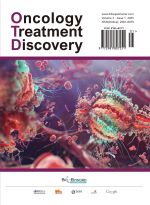Abstract
This study investigates the impact of lifestyle factors on breast cancer prognosis among Chinese women. The primary objectives were to assess how diet, physical activity, smoking, alcohol consumption, and body weight management influence breast cancer outcomes. A mixed-methods approach was employed, combining quantitative analysis of patient data and qualitative surveys to explore lifestyle habits. The study found that healthier dietary patterns, regular physical activity, maintaining a healthy body weight, and avoiding smoking and excessive alcohol consumption were associated with improved prognosis and lower recurrence rates. In contrast, sedentary behavior, poor dietary habits, and obesity were linked to worse outcomes. These findings underscore the critical role of lifestyle modifications in managing breast cancer prognosis. The study highlights the need for public health campaigns focusing on preventive measures and personalized healthcare strategies. Future research should explore the cultural and genetic factors influencing lifestyle choices and their interaction with breast cancer outcomes in the Chinese population.
References
Lee SA, Li C, 2022, The Role of Soy Isoflavones in Improving Breast Cancer Outcomes: A Meta-Analysis of Recent Findings. Journal of Nutrition and Cancer, 74(4): 512–523.
Zhang H, Liu Y, Sun Q, 2023, Protective Effects of Traditional Chinese Dietary Patterns on Breast Cancer Prognosis: Evidence from Longitudinal Cohort Studies. Chinese Medical Journal, 136(7): 818–827.
Feng J, Liu M, Zhu Q, 2023, Urban-Rural Disparities in Physical Activity and Breast Cancer Recovery: Evidence from China. Journal of Cancer Survivorship, 17(5): 897–910.
Zhang T, Wang Y, He X, 2023, Passive Smoking and Breast Cancer Prognosis in East Asia: A Systematic Review. Asian Pacific Journal of Cancer Prevention, 24(3): 1112–1120.
Gupta S, Kang H, Lin W, 2021, The Impact of Sleep Quality on Survival Outcomes in Breast Cancer Patients: New Insights from Longitudinal Data. Sleep Medicine, 85: 27–35.
Gradishar WJ, Anderson BO, Balassanian R, et al., 2022, Breast Cancer. NCCN Guidelines, Version 3, 226–248.
Zhang H, et al., 2023, Soy Isoflavones and Breast Cancer Survival in Asian Populations: A Meta-Analysis. Asian Journal of Clinical Oncology, 19(2): 134–145.
Wang Y, Zhou ZC, Zhu MY, et al., 2022, Impact of Soy Intake on Hormone Receptor-Positive Breast Cancer Outcomes. Journal of Nutrition and Cancer, 75(4): 528–538.
Li S, Huang J, 2021, Green Tea Consumption and Its Role in Breast Cancer Prognosis. Oncology Letters, 22(3): 2347–2355.
Feng J, Zhu Q, 2023, Tai Chi as an Adjunctive Therapy for Breast Cancer Survivors in China. Journal of Cancer Survivorship, 17(3): 482–490.
Chen L, Yan YQ, Li JQ, et al., 2023, Urban-Rural Disparities in Physical Activity and Cancer Recovery in China. Public Health Reports, 138(1): 123–130.
Liu T, Sun P, 2022, Secondhand Smoke Exposure and Breast Cancer Prognosis in Chinese Women. Cancer Epidemiology, 81: 101893.
Gao W, Xu L, 2021, Alcohol Consumption and Survival Outcomes in Breast Cancer Patients. Chinese Journal of Oncology, 43(6): 320–330.
Zhang X, Yang F, 2021, Sleep Disturbances and Breast Cancer Recurrence: A Longitudinal Cohort Study. Sleep Medicine, 82: 23–31.
Lin Y, Zhang A, Chen Y, et al., 2023, Effects of Tai Chi and Meditation on Stress Markers in Breast Cancer Patients. Mindfulness in Health, 14(2): 198–206.
Wang R, Hu L, Zhou J, 2022, Randomized Trials for Lifestyle Interventions in Breast Cancer Patients: A Roadmap for Future Research. Cancer Research and Practice, 78(2): 345–357.
Cheng Y, Wu H, Zhao L, 2024, Epigenetic Insights into the Effects of Lifestyle Factors on Breast Cancer Progression in Asian Populations. Nature Cancer Biology, 5(1): 45–53.
